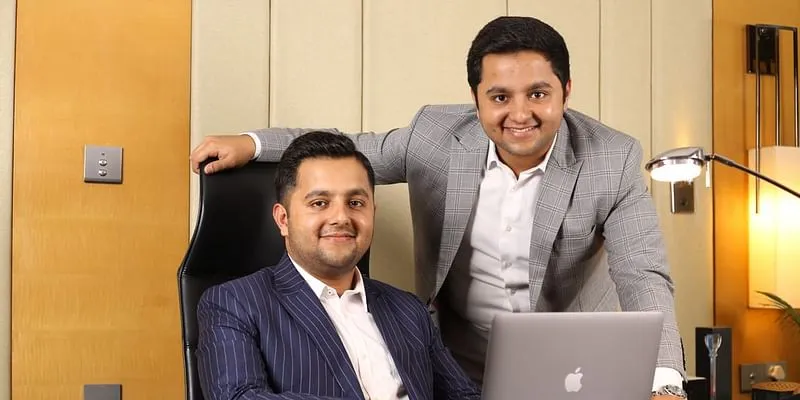How these 21-year-old twins are winning clients like Apollo, IGL, state govts with their consultancy business
Interested in scientific research, technology innovation, and business consulting from a young age, Yuvraj and Yashraj Bhardwaj used funds from grants, fellowships, and prizes to start Petonic Infotech, a mid-sized consultancy services enterprise, in 2017.
Twins Yuvraj and Yashraj Bhardwaj developed a keen interest in scientific research, technology innovation, and business consultancy when they were just 14.
They were hooked to reading research journals, coming up with research ideas, and learning about innovation.
Yuvraj (21) tells SMBStory:
“While still in school, we launched research projects such as pumpkin purifiers and bajra purifiers. The bajra purifier, which used coarse grain to purify water, gained recognition from State Ganga River Conservation Agency, the governments of Malaysia, Austria, Israel, SF Fellowship, etc.”
In 2017, at the age of 17, the two patented their research and used the funds from grants, fellowships, and prizes to start , a consultancy services enterprise.
“In the consulting industry, advisory is a prominent service offered by most firms, but often lacks executional value. Such advisory does not always help clients. This is a gap we wanted to address by applying our knowledge and passion for scientific research and technology innovation,” says Yashraj.
Business model
According to the duo, consulting is normally affordable for larger companies, which is why the brothers decided to extend similar services to small enterprises too.
Petonic Infotech began by providing consulting services to enterprises of various sizes in sectors such as technology, finance, agriculture, manufacturing, F&B, healthcare, as well as government bodies.
Some of its larger clients include Apollo Hospitals, Indraprastha Gas (IGL), the government of Uttarakhand, and the government of Himachal Pradesh.
“We work extensively on providing project management consultancy, transformation consulting, M&A services, academic research, strategic studies, fraud analysis, data analytics, IT and more,” says Yuvraj.
Petonic looks to work with a collaborative approach and a focus on innovation and creative solutions as per the specific needs of these clients.
While the brothers don’t disclose the company’s revenue, they claim to have managed and worked on client assets/projects worth $860 million so far, adding that their outcome-based business model has been a success factor. The 120-member, mid-sized enterprise also works on a fixed-fee model.

Petonic Infotech founders Yuvraj Bhardwaj (left) and Yashraj Bhardwaj (right)
Motivating factor
The brothers looked at starting Petonic as a way of achieving financial freedom.
“We come from a humble background and our parents thought like typical middle-class parents. They always did what they thought was best for us,” shares Yashraj.
While they may not have been into video games or movies, the two shared a love for cricket. However, when they were 11, their parents wanted them to quit playing the sport so they could focus on their studies and eventually land a stable job.
“When we had to quit playing cricket, we felt a pinch,” he adds.
The duo felt if they had more money, they could have continued playing cricket. This became a motivating factor behind their decision to start their own business.
In the early days, the brothers had to make clients believe in their potential. They let their results do the talking, which helped them establish a proven track record of successful projects.
COVID-19 impact and future plans
In 2020, the global management consulting industry declined by about 15 percent and is expected to subsequently contract in 2021 from $241 billion to $204 billion, reports Beroe Inc.
Petonic Infotech, however, did not see a decline in the past year, the brothers claim.
“In fact, the COVID-19 pandemic has accelerated our growth and opened doors to solving challenging problems for our clients. Our workload has increased, the challenges are exciting, and we are growing our team to 200 this year,” says Yashraj.
The company’s business and operating model puts it in competition with the Big Four consulting and accounting firms when it comes to projects.
A recent example of this is when Petonic pipped the top firms to get a mandate from Integrated Livelihood Support Project (ILSP) to promote brand ‘Hilans’, a farmer-friendly initiative by the Uttarakhand government.
It now plans to forge ahead and build a global consulting services brand from India.
“We look to solve problems and refrain from squeezing customers to provide piles of money without delivering results. Our outcome-based business model will continue to be our success factor. Our current pipeline of projects indicates we can grow our revenue four times this year,” says Yuvraj.
Edited by Saheli Sen Gupta








